
Regina Ip is no stranger to political storms. The Executive Council member endured a widespread backlash over an effort to implement national security legislation in 2003, a saga that led to her resignation as security chief.
It is no surprise then that the outspoken pro-Beijing lawmaker has found herself a prominent voice in the latest debate over a controversial extradition bill. The legal amendments would enable the chief executive and local courts to handle case-by-case fugitive transfer requests from jurisdictions with no prior agreements – including China. The prospect has led to some of city’s largest-ever demonstrations and police-protester clashes, as Hongkongers fear they could face trial in the mainland where human rights protections are lacking.
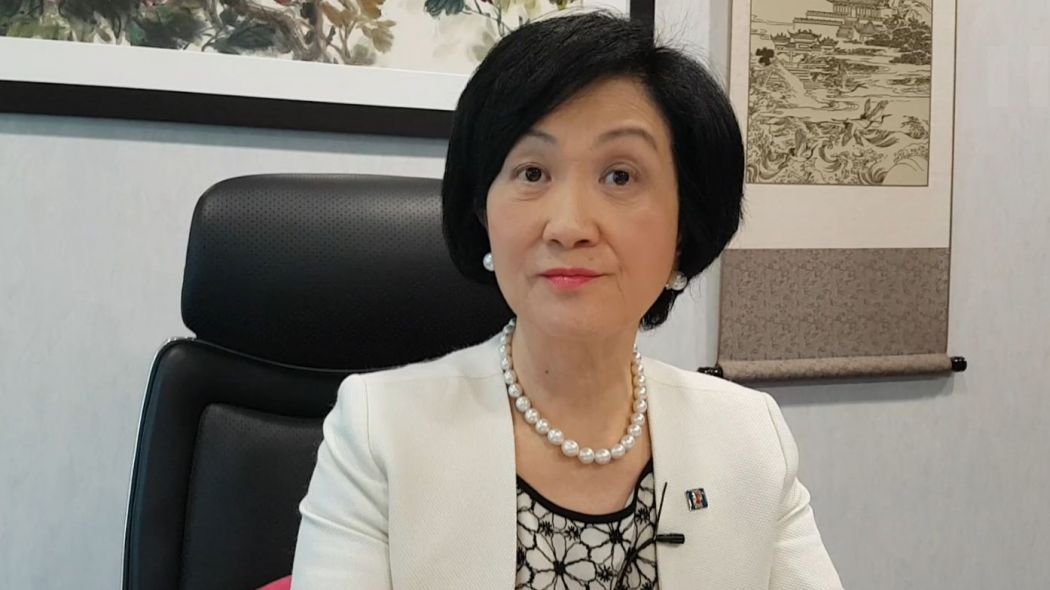
Ip, an advisor in Chief Executive Carrie Lam’s cabinet, has positioned herself as a staunch supporter of the bill. But as momentum against the controversial plan builds, politicians have scrambled to curtail its fallout, with some pro-establishment figures urging a rethink.
The 68-year-old founder of the New People’s Party maintains there is “nothing wrong with the bill,” though she concedes it has amplified public anxieties over Beijing’s influence in the territory.
“The root of the fear is, of course, distrust of mainland systems. I completely acknowledge that. But the Chief Executive doesn’t really have the final say. It’s the judges who have the ultimate say,” Ip said in an interview with HKFP on Friday. “I think we should trust our courts, trust our judges. Our judicial system has a high reputation.”
History repeating itself
In recent weeks, Hong Kong has been rocked by some of the worst political unrest since its 1997 handover, with police deploying tear gas and rubber bullets earlier this month against advancing protesters. Organisers of a march on June 16 said around two million people had attended, whilst acts of civil disobedience have unfolded across the city, with over a hundred protesters occupying Wan Chai’s Revenue Tower on Monday.

The protests are an echo of the past. Ip presided over earlier ill-fated efforts to legislate national security laws – a constitutional duty under Article 23 of the Basic Law. The law was intended to prohibit treason and sedition against the central government, but the plan sparked a public outcry over its potential to damage rights and freedoms in the city.
On July 1 2003, an estimated 500,000 protested in the streets – an unprecedented outpouring which sounded the death knell for the bill and Ip’s position as security minister.
But Ip insisted that the anti-extradition protests are altogether different: “The 2003 mass protests were completely orderly and peaceful,” she said. “This time it is very well organised, it is globally orchestrated,” echoing assertions from the authorities of foreign involvement over the “million-strong” march which occurred in tandem with other international displays of solidarity.
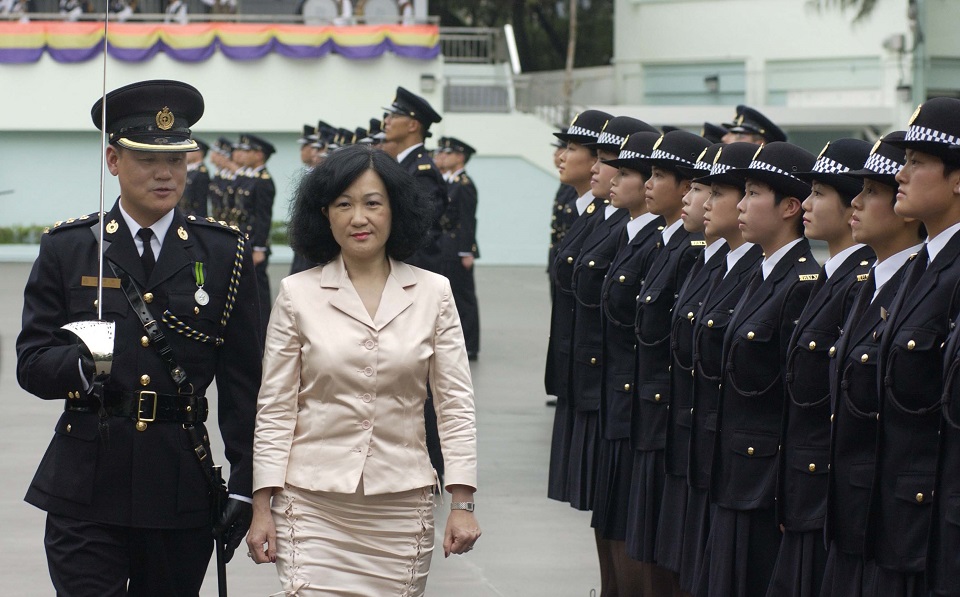
“History is repeating itself but it’s getting worse and worse,” the veteran politician said, adding that she had predicted violence would break out.
A PR problem
Reflecting on the unpopularity of the extradition bill, Ip blames it on poor public relations.
Filing through a pile of printed anti-extradition law posters, she lands on an image of Lam merged with a tiger. “Oppose sending to China,” she reads – a punchy, trisyllabic slogan that has become the rallying cry of anti-extradition protesters. The last two characters are also a witty homonym which means “to see off a dying relative,” implying the death of Hong Kong, according to author Antony Dapiran.
“The opposition use these very simple, eye-catching fliers to tell people how to fight against the bill,” Ip said, pointing to a bulky government booklet. “Look at this, the government issued these pamphlets – very heavy, complicated pamphlets.”
“The government has failed miserably in countering all the misinformation,” she added. “It’s not like all of the videos produced would have you believe – that a butcher who had an argument with his neighbour would face trumped-up charges about submitting false documents in mainland China…”
In a widely-shared 16-minute drama hosted by Apple Daily, a market worker is shown being handcuffed and sent to mainland China before he could contact his lawyers.

Viral videos aside, cross-sector critics have raised concerns that political dissidents and human rights activists could be extradited to face China’s notoriously opaque legal system.
Lam Wing-kee, a local bookseller who disappeared in 2015 only to resurface in a televised confession on state TV in China, fled to Taiwan in April citing fears over the extradition bill. The 63-year-old is still wanted in the mainland after skipping bail.
‘Tears and anger’
The government’s efforts to allay the crisis has given rise to a chorus of criticism from both inside and outside of its inner circle, with some advising Lam to stand her ground.
But earlier this month, Michael Tien became the first pro-Beijing legislator to publicly call for a delay of the bill, with senior advisors Ronny Tong and Lam Ching-choi following suit.
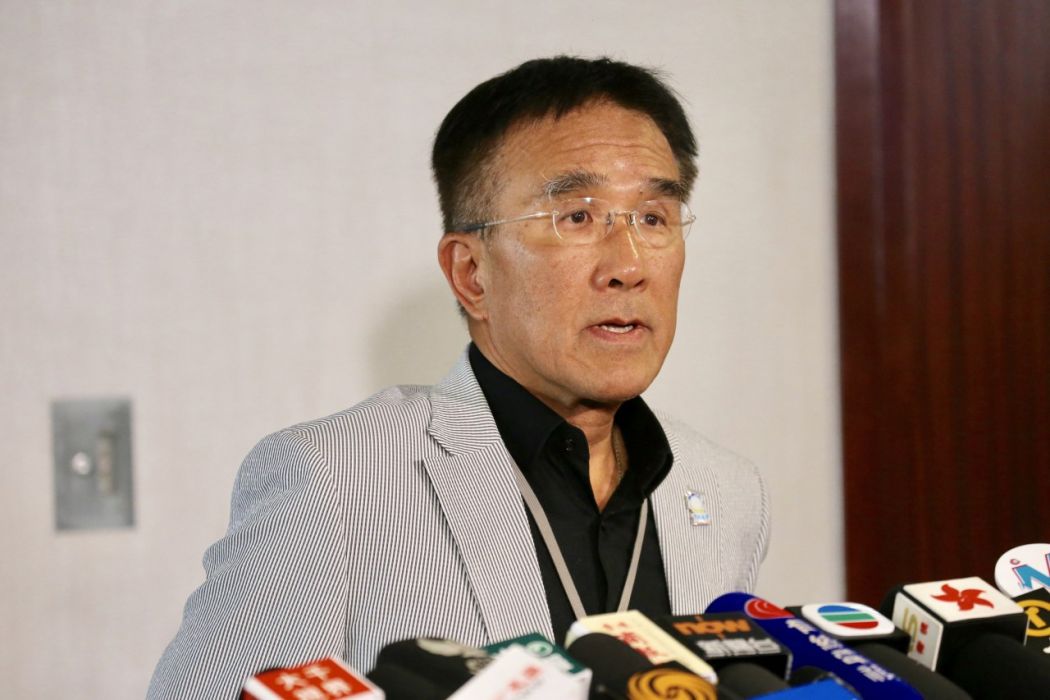
Meanwhile, rumours abound of chaos behind closed doors. Reports emerged last week of pro-Beijing lawmaker Alice Mak unleashing a profanity-laced tirade against Lam during a closed-door meeting after hearing that the government would suspend the bill.
Ip declined to respond to the report but brushed it off as a side-effect of tackling contentious issues.
“The government is caught between a rock and a hard place,” she said. “If it shelved the bill, it would upset all the diehard supporters. And many of us – including myself – have been backing the government to the hilt, so inevitably there were tears and anger expressed. It will take a while for the government to pick up the pieces.”
Ip has remained open about her ambitions for the city’s top job. In 2012 and 2017, she twice failed to secure the minimum 150 nominations to enter the chief executive race.
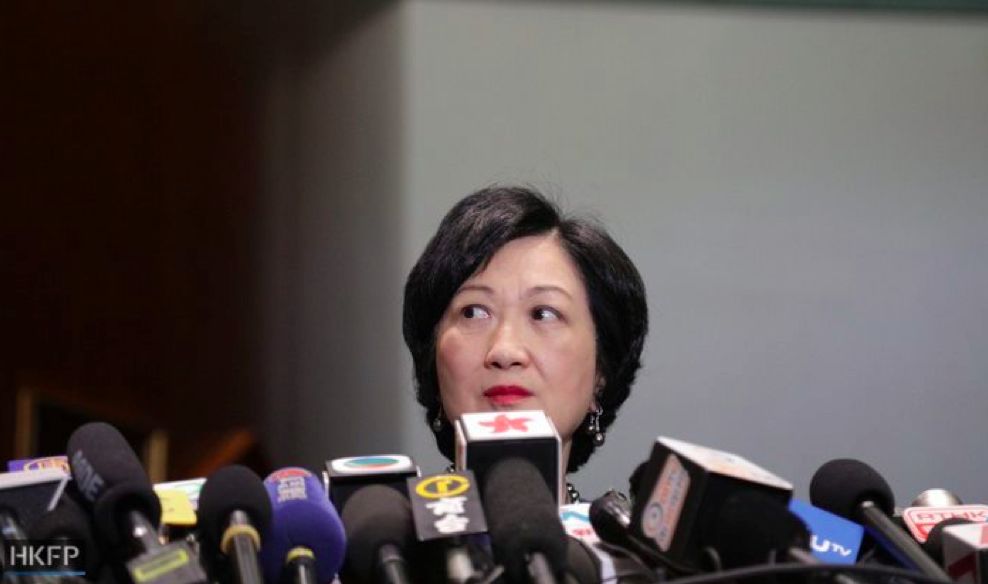
But when asked if she still holds those aspirations, she avoided the question, saying: “Carrie has the job. It is a very tough job. She has taken an oath to serve the Hong Kong people. I think she should be in that post and finish it.”
‘Rebels without a cause’
On Friday, just a block from Ip’s office, student groups clad in black brought traffic to a halt as they spilt out onto some of the city’s main thoroughfares. As the evening wore on, they surrounded police headquarters in Wan Chai for several hours hurling eggs and insults over perceived police brutality.
Ip has condemned the recent anti-extradition protests as a threat to the city’s safety: “These young people must recognise the very negative implications and repercussions of what they’re doing,” she said.”[It] is leading to strong questions about Hong Kong’s security, safety and stability.”
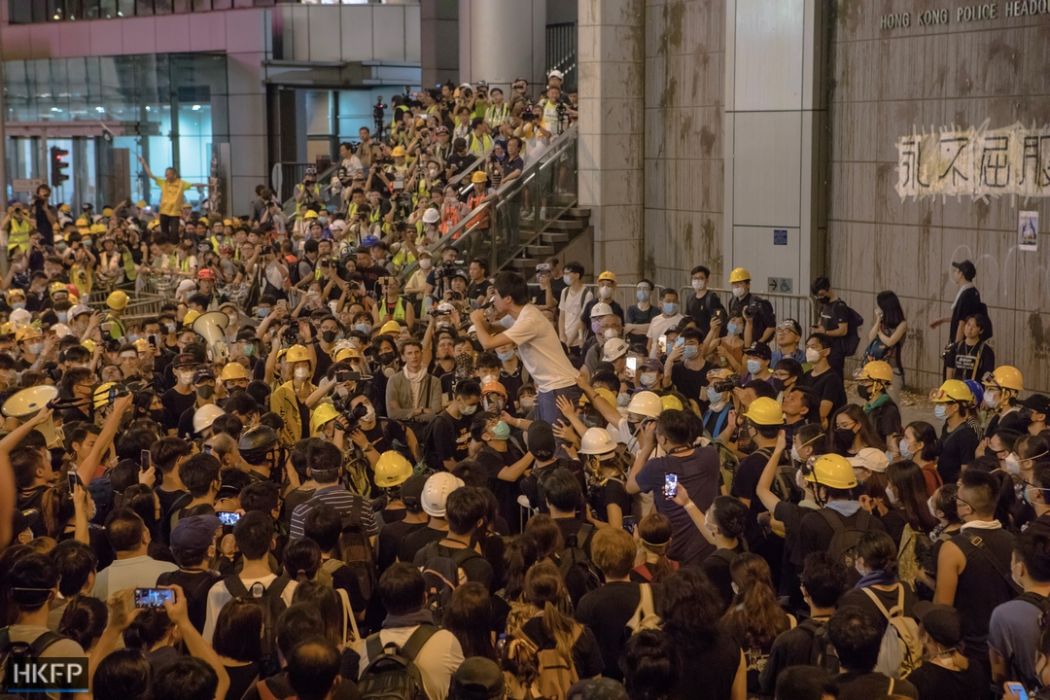
“If they really love Hong Kong, they should desist from what they’re doing. They should stand down,” she added.
Ip said that the government should set up a dialogue with protesters – a call that has been echoed by pan-democrats who have criticised officials as failing to address crowds while in self-imposed exile.
“Currently, what we have is a stand-off,” she said. “We have to tease out the issues. What is the cause? I don’t think they should become rebels without a cause.”
The continued occupation of roads and office buildings threaten to negatively impact business in the bustling financial hub, Ip said, despite criticism of the bill from international trade bodies including the American Chamber of Commerce (AmCham) in March.
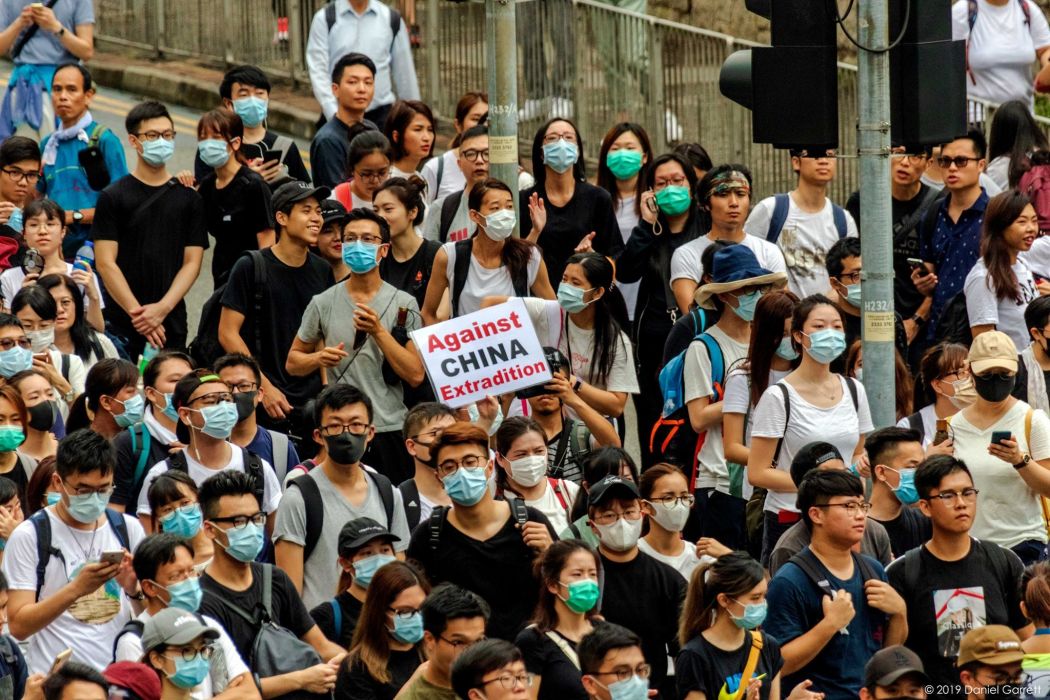
“The bill has been de facto withdrawn, so what is the cause?” Ip said. “I’m sure AmCham would now want these young people to calm down.”
A spokesperson from AmCham told HKFP that they had no comment, but Ip insisted that there is little distinction between a suspended and withdrawn bill. She said it is nothing more than a matter of semantics, as she doubled down on her criticism of the continuing protests.
“If they want to put pressure, rely on sheer numbers to get the government to release people arrested, that goes against the rule of law. That shouldn’t be allowed. That would be a very dangerous precedent,” she said.
The Hong Kong Free Press #PressForFreedom 2019 Funding Drive seeks to raise HK$1.2m to support our non-profit newsroom and dedicated team of multi-media, multi-lingual reporters. HKFP is backed by readers, run by journalists and is immune to political and commercial pressure. This year’s critical fundraiser will provide us with the essential funds to continue our work into next year.

